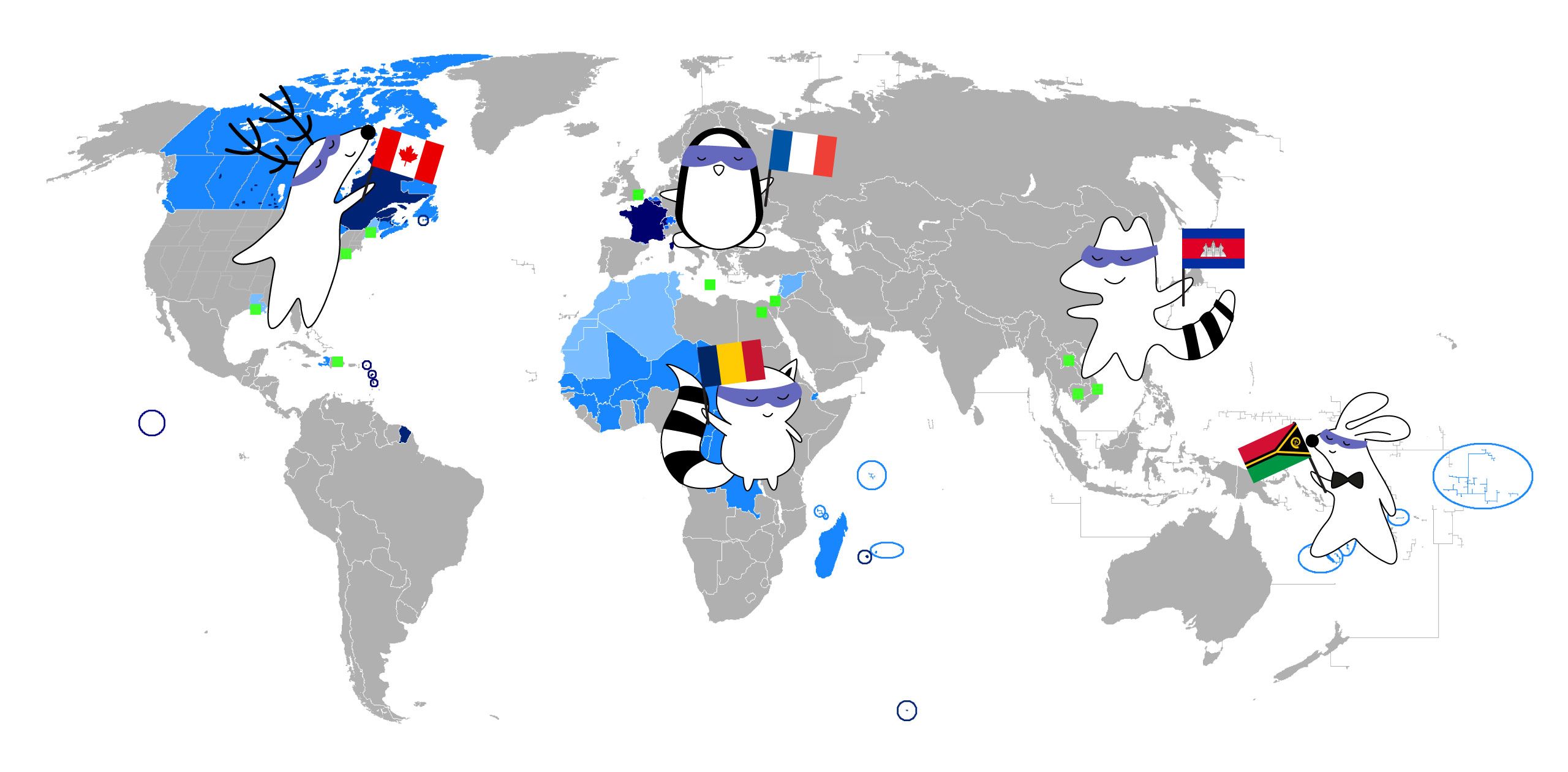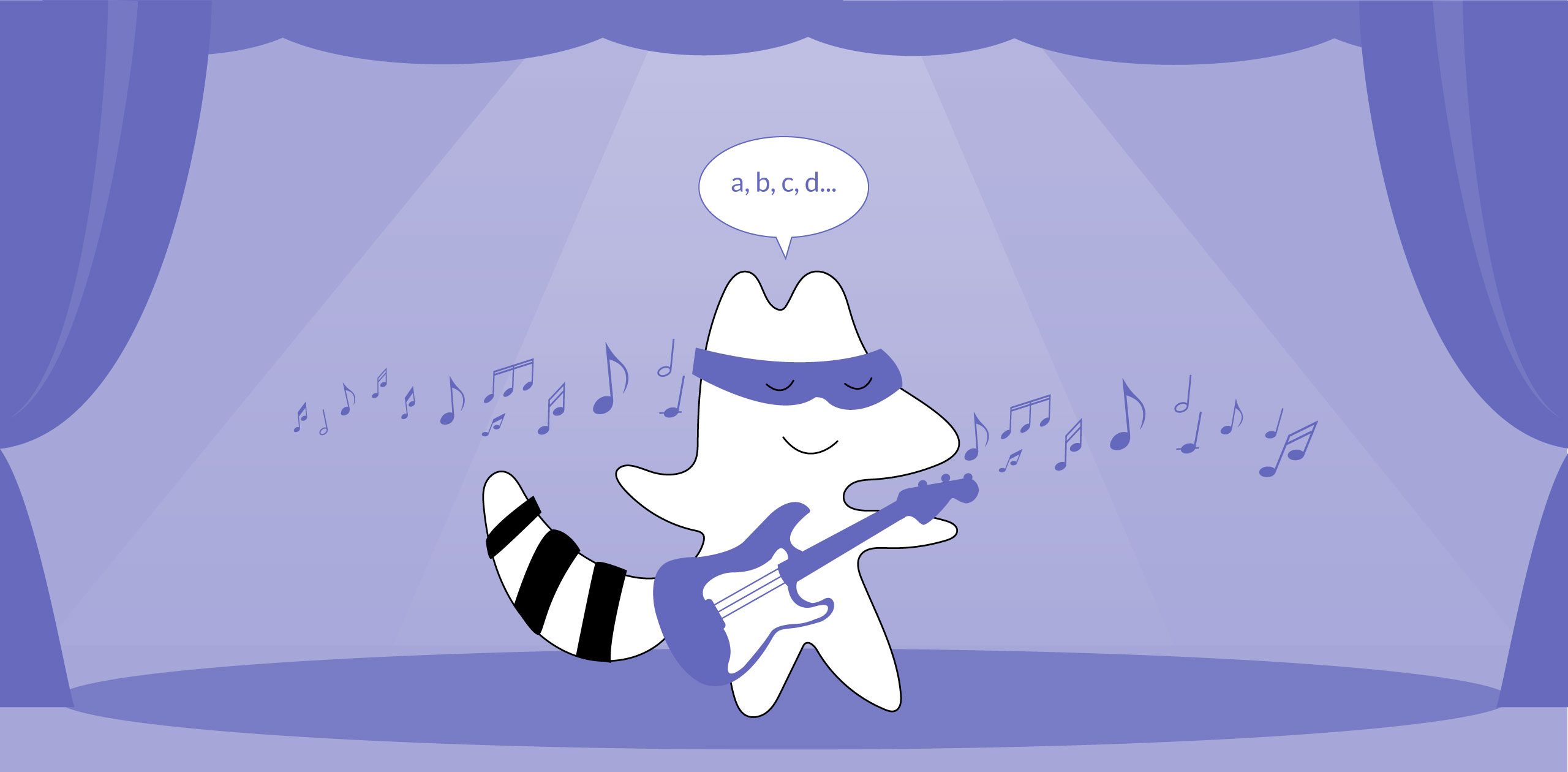
Pronouns seem like a pretty simple part of speech - they are words that replace nouns. In French, there are quite a few of them, and each is used in certain situations. Because of that, many people don’t pay enough attention to them - but you shouldn’t.
Knowing French pronouns will help you:
- improve your sentence structure
- improve your speaking and writing
- help you understand various grammar constructions better
Do you want to become fluent in written and spoken French and have exciting conversations with native speakers? Then let us introduce you to the most important French pronouns.
Learn French with Langster
What Is a Pronoun?
A pronoun (un pronom) is a part of speech in many languages - it is a small word that replaces a noun in a sentence. For example:
- Lisa loves studying → She loves studying.
Some pronouns can be really easy to get the hang of - for example, personal pronouns, such as the one above. Others can be much more tricky and it can take quite some time to master them.
In French, pronouns are classified into two groups and 15 categories based on their role in the sentence (for example, subject, direct object, etc), gender, number, and person. Some of these categories are used very often while others are a bit more obscure.
Now, let’s dive into this complicated topic - and we hope that by the end of this article, the information about French pronouns will be well-structured in your head.
French Personal Pronouns
The first group includes French personal pronouns, and those are much more commonly used and a little simpler to understand than the second group, French impersonal pronouns.
Personal pronouns refer to the “who” or “what” in the sentence - because of that, they should always agree in number and gender with the noun they represent. For example, we have je, moi, les, or leur.
Below, you can find the most common categories of personal pronouns that every beginner should learn. Some of them might be a little complicated, but we will do our best to explain them to you in plain English.
French Personal Subject Pronouns
As you might have guessed from the title, a subject pronoun refers to the subject in the sentence. Whether you’re a beginner or a more experienced learner, you should have encountered them already when conjugating verbs or when forming basic sentences.
Here are the French subject pronouns:
| Je | I |
| Tu | you (singular, informal) |
| Il | he |
| Elle | she |
| On | one/we |
| Nous | we |
| Vous | you (plural, or singular informal) |
| Ils | they (when there is at least one masculine subject) |
| Elles | they (when all the subjects are feminine) |
| Je | I |
| Tu | you (singular, informal) |
| Il | he |
| Elle | she |
| On | one/we |
| Nous | we |
| Vous | you (plural, or singular informal) |
| Ils | they (when there is at least one masculine subject) |
| Elles | they (when all the subjects are feminine) |
The pronoun on is often used as the word “one,” but in modern French, it’s used to replace the casual “we” instead of “nous.”
Here’s a quick example:
French
English
Martha et Claude ont mangé la tarte. Ils ont mangé la tarte.
Martha and Claude ate the pie. They ate the pie.
French personal subject pronouns are pretty easy to learn, so you shouldn’t have any problems mastering them.

French Stressed Pronouns
Stressed pronouns are also pretty simple - their name simply suggests that they help to emphasize (or stress) a person in a sentence. You also should have encountered at least one of them by now - moi, me.
Here’s the list of the French stressed pronouns:
| Moi | me (first person singular) |
| Toi | you (second person singular) |
| Lui/elle/soi | him/her/self (third person singular) |
| Nous | us (first person plural) |
| Vous | you (second person plural) |
| Eux/elles | them (third person plural) |
| Moi | me (first person singular) |
| Toi | you (second person singular) |
| Lui/elle/soi | him/her/self (third person singular) |
| Nous | us (first person plural) |
| Vous | you (second person plural) |
| Eux/elles | them (third person plural) |
Note here that soi is used only for indefinite, unspecified persons and can be translated as “self.”
Stressed pronouns can be used in the following situations:
1. After c’est or ce sont:
French
English
C'est moi.
That’s me.
2. When there’s more than one subject:
French
English
Martha et lui ont mangé la tarte.
Martha and him ate the pie.
3. In questions:
French
English
Je pense que c'est une bonne idée, et toi ?
I think this is a good idea, and you?
4. After prepositions:
French
English
Je ne peux pas vivre sans lui.
I can't live without him.
5. When comparing someone:
French
English
Martha apprend plus vite que vous.
Martha is learning faster than you.
As you can see, there are quite a few of those. In the beginning, it can be a helpful and fun reminder to use French stressed pronouns when you want to stress the person.
Direct Object Pronouns in French
A quick reminder: a direct object in the sentence who or what is affected by the verb. For example, “I love Mark” - here, “Mark” is the direct object. As you might have guessed, a direct object pronoun would replace it.
Here’s a list of the French direct object pronouns:
| Me/m’ | me (first person singular) |
| Te/t’ | you (second person singular) |
| Le/la/l’ | him/her (third person singular) |
| Nous | us (first person plural) |
| Vous | you (second person plural) |
| Les | them (third person plural) |
| Me/m’ | me (first person singular) |
| Te/t’ | you (second person singular) |
| Le/la/l’ | him/her (third person singular) |
| Nous | us (first person plural) |
| Vous | you (second person plural) |
| Les | them (third person plural) |
Let’s create an example with one of them:
French
English
Martha aime les livres. Martha les aime.
Martha loves books. Martha loves them.
Indirect Object Pronouns in French
An indirect object is slightly different from the direct one - it’s also affected by the verb, but in an indirect way. In French, it can be a little tricky to determine which object is which, so here’s a tip for you: an indirect object is always preceded by a preposition (for example, à or de).
French
English
Il lui a donné un livre.
He gave a book to her.

French indirect object pronouns are pretty similar to the direct ones, take a look:
| Me | me (first person singular) |
| Te | you (second person singular) |
| Lui | him/her (third person singular) |
| Nous | us (first person plural) |
| Vous | you (second person plural) |
| Leur | them (third person plural) |
| Me | me (first person singular) |
| Te | you (second person singular) |
| Lui | him/her (third person singular) |
| Nous | us (first person plural) |
| Vous | you (second person plural) |
| Leur | them (third person plural) |
Stay Alert
Stay cautious when using direct or indirect object pronouns in French, especially in the third person singular and third person plural.
Remember that for indirect object pronouns, you should use lui and leur, and for the direct - le, la, or les.
French
English
Je le vois. Je lui fais signe.
I'm seeing him. I'm waving to him.
French Reflexive Pronouns
Even if you are a beginner, you might have come across French reflexive verbs. They are always used together with the reflexive pronouns and indicate that the subject of the sentence is performing the action on themselves. For example, Je me lave - “I wash (myself).”
In French, reflexive verbs usually have to do something with one’s body, clothing, relationships, or state of mind (for example, having a shower, taking a walk, or relaxing). They can be used with or without a reflexive pronoun - in the latter case, the action will be simply directed not on the subject, but on the object in the sentence.
When reflexive pronouns are used with the reflexive verbs, they always have to agree with the subject of the sentence.
Let’s conjugate the same reflexive verb as above - se laver (to wash oneself).
| Je me lave. |
| Tu te laves. |
| Il, elle, on se lave. |
| Nous nous lavons. |
| Vous vous lavez. |
| Ils, elles se lavent. |
| Je me lave. |
| Tu te laves. |
| Il, elle, on se lave. |
| Nous nous lavons. |
| Vous vous lavez. |
| Ils, elles se lavent. |

French Impersonal Pronouns
Unlike personal pronouns, impersonal pronouns don’t have to agree with the subject. Moreover, they can replace nouns that are neither direct nor indirect objects. Below, we will show you the three most popular impersonal pronouns in French.
Note that even though impersonal pronouns don’t need to agree with the subject of the sentence, they still have to agree with the noun they replace.
Impersonal Subject Pronouns
In English, there is one impersonal pronoun: “it.” In French, there are two: ce and il. These are used to introduce an impersonal verb or expression. They can be used interchangeably, but ce (contacted ac c') is often seen as a more formal one.
Here are a few examples:
French
English
C’est la vie.
This is life.
C’est moi.
It’s me.
Il est bon à savoir.
It’s good to know.
Adverbial Pronouns
Adverbial pronouns are probably the most challenging of them all - but luckily, there are only two of them: y and en. However, they still can give beginners quite a headache.
The adverbial pronoun y is much like the English word “there.” It’s used to replace the construction “preposition à + a noun (usually a location).” On the other hand, en is used more like “some” or “one,” when you need to replace “preposition de + a noun or phrase” or a construction “quantity + noun.” For example:
French
English
Je vais à l'école. J’y vais.
I'm going to school. I’m going there.
J'ai mangé de la confiture. J'en ai mangé un peu.
I ate some jam. I ate some of it.
The adverbial pronouns are also used in two popular constructions you have probably heard before:
French
English
Il y a de la confiture dans le frigo.
There is jam in the fridge.
Vous avez un stylo ? J'en ai un.
Do you have a pen? I have one.
Indefinite Pronouns
There are several indefinite pronouns in French that you can use to indicate an unknown quantity or describe something. These are pretty useful, as they can function as subjects and objects in the sentence. Here are some of them:
- d’autres (others)
- chacun(e) (each one)
- plusieurs (several)
- quelque chose (something)
- quelqu’un (someone)
Let’s look at an example:
French
English
Quelqu'un a volé mon livre !
Somebody stole my book!
To learn more about the indefinite pronouns in French, visit our grammar point about them.

Other French Pronouns
Of course, these are not the only pronouns in French - there are many others. Here’s the full list of different types of French pronouns - to learn more about them, visit our grammar page.
- Demonstrative Pronouns - definite and indefinite
- Possessive Pronouns
- Interrogative Pronouns
- Negative Pronouns
- Relative Pronouns - definite and indefinite
French Pronouns Don’t Have to Be Painful
When you’re just starting your journey with the French language, pronouns can be quite a headache. Subject pronouns, demonstrative pronouns, relative pronouns, and many others - this just seems like too much.
However, pronouns are and will always be a huge part of French grammar - so whether you like it or not, if you want to become fluent in French, you have to learn them.
Fortunately, there is a simple way to learn French and have fun - and that is with Langster. Check out the app today and see how fun stories make your process of learning French easy and exciting.









